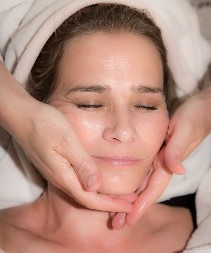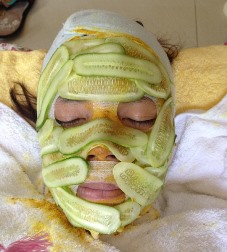How to Pick the Best Esthetics Program near Munich North Dakota
 Once you have made a decision to enter the field of cosmetology and attend an esthetician school near Munich ND, the task starts to locate and enroll in the ideal program. It’s important that the school you pick not only provides the proper education for the specialty you have decided on, but also preps you for passing the licensing exam. When you start your preliminary search, you might be somewhat puzzled about the distinction between beauty schools and cosmetology schools. Well don’t be, because the titles are pretty much interchangeable and both relate to the same type of school. We’ll discuss a little bit further about that in the upcoming segment. If you plan on commuting to classes you will want to locate a school that is within driving distance of your Munich home. Tuition will also be an important factor when evaluating potential schools. Just bear in mind that because a school is the nearest or the cheapest it’s not automatically the best choice. There are several other factors that you should weigh when comparing schools, for example their reputation and accreditation. We will examine what questions you should ask concerning the cosmetology schools you are thinking about later within this article. Before we do, let’s talk a little bit about what cosmetology is, and what types of courses are available.
Once you have made a decision to enter the field of cosmetology and attend an esthetician school near Munich ND, the task starts to locate and enroll in the ideal program. It’s important that the school you pick not only provides the proper education for the specialty you have decided on, but also preps you for passing the licensing exam. When you start your preliminary search, you might be somewhat puzzled about the distinction between beauty schools and cosmetology schools. Well don’t be, because the titles are pretty much interchangeable and both relate to the same type of school. We’ll discuss a little bit further about that in the upcoming segment. If you plan on commuting to classes you will want to locate a school that is within driving distance of your Munich home. Tuition will also be an important factor when evaluating potential schools. Just bear in mind that because a school is the nearest or the cheapest it’s not automatically the best choice. There are several other factors that you should weigh when comparing schools, for example their reputation and accreditation. We will examine what questions you should ask concerning the cosmetology schools you are thinking about later within this article. Before we do, let’s talk a little bit about what cosmetology is, and what types of courses are available.
What is Cosmetology
 Cosmetology is an occupation that is everything about making the human anatomy look more attractive through the application of cosmetics. So naturally it makes sense that a number of cosmetology schools are regarded as beauty schools. Most of us think of makeup when we hear the word cosmetics, but really a cosmetic can be almost anything that enhances the look of a person’s skin, hair or nails. If you want to work as a cosmetologist, almost all states require that you undergo some kind of specialized training and then be licensed. Once you are licensed, the work settings include not only Munich ND beauty salons and barber shops, but also such businesses as spas, hotels and resorts. Many cosmetologists, after they have gained experience and a client base, establish their own shops or salons. Others will start seeing customers either in their own homes or will go to the client’s home, or both. Cosmetology college graduates are known by many names and are employed in a wide range of specialties including:
Cosmetology is an occupation that is everything about making the human anatomy look more attractive through the application of cosmetics. So naturally it makes sense that a number of cosmetology schools are regarded as beauty schools. Most of us think of makeup when we hear the word cosmetics, but really a cosmetic can be almost anything that enhances the look of a person’s skin, hair or nails. If you want to work as a cosmetologist, almost all states require that you undergo some kind of specialized training and then be licensed. Once you are licensed, the work settings include not only Munich ND beauty salons and barber shops, but also such businesses as spas, hotels and resorts. Many cosmetologists, after they have gained experience and a client base, establish their own shops or salons. Others will start seeing customers either in their own homes or will go to the client’s home, or both. Cosmetology college graduates are known by many names and are employed in a wide range of specialties including:
- Estheticians
- Hairdressers
- Hairstylists
- Beauticians
- Barbers
- Manicurists
- Nail Technicians
- Makeup Artists
- Hair Coloring Specialists
- Electrolysis Technicians
As formerly mentioned, in the majority of states practicing cosmetologists have to be licensed. In a few states there is an exemption. Only those conducting more skilled services, such as hairstylists, are required to be licensed. Other people employed in cosmetology and less skilled, such as shampooers, are not required to be licensed in those states.
Click Here to Get Free Information on Esthetician Schools Near You!
Esthetics Degrees
 There are basically two pathways available to receive esthetician training and a credential after completion. You can enroll in a certificate (or diploma) course, or you can work toward an Associate’s degree. Certificate programs typically call for 12 to 18 months to complete, while an Associate’s degree commonly takes about 2 years. If you enroll in a certificate program you will be trained in all of the main areas of cosmetology. Shorter programs are available if you prefer to concentrate on just one area, such as esthetics. A degree program will also likely feature management and marketing training so that graduates are better prepared to operate a salon or other Munich ND business. More advanced degrees are not typical, but Bachelor and Master’s degree programs are offered in such specializations as salon or spa management. Whichever type of program you decide on, it’s important to make certain that it’s certified by the North Dakota Board of Cosmetology. Many states only approve schools that are accredited by certain reputable organizations, such as the American Association of Cosmetology Schools (AACS). We will discuss the advantages of accreditation for the school you select in the next segment.
There are basically two pathways available to receive esthetician training and a credential after completion. You can enroll in a certificate (or diploma) course, or you can work toward an Associate’s degree. Certificate programs typically call for 12 to 18 months to complete, while an Associate’s degree commonly takes about 2 years. If you enroll in a certificate program you will be trained in all of the main areas of cosmetology. Shorter programs are available if you prefer to concentrate on just one area, such as esthetics. A degree program will also likely feature management and marketing training so that graduates are better prepared to operate a salon or other Munich ND business. More advanced degrees are not typical, but Bachelor and Master’s degree programs are offered in such specializations as salon or spa management. Whichever type of program you decide on, it’s important to make certain that it’s certified by the North Dakota Board of Cosmetology. Many states only approve schools that are accredited by certain reputable organizations, such as the American Association of Cosmetology Schools (AACS). We will discuss the advantages of accreditation for the school you select in the next segment.
Online Esthetics Training
Online esthetician schools are advantageous for Munich ND students who are employed full time and have family commitments that make it hard to attend a more traditional school. There are many web-based cosmetology school programs offered that can be attended by means of a desktop computer or laptop at the student’s convenience. More traditional beauty programs are typically fast paced because many courses are as short as 6 or 8 months. This means that a significant amount of time is spent in the classroom. With internet courses, you are dealing with the same volume of material, but you are not spending numerous hours outside of your home or commuting back and forth from classes. On the other hand, it’s important that the program you select can provide internship training in area salons and parlors to ensure that you also get the hands-on training required for a complete education. Without the internship portion of the training, it’s difficult to acquire the skills required to work in any area of the cosmetology field. So be sure if you choose to enroll in an online school to confirm that internship training is available in your area.
Questions to Ask Esthetics Degree Programs
 Following is a list of questions that you should research for any esthetician training program you are contemplating. As we have previously covered, the location of the school relative to your Munich residence, together with the expense of tuition, will probably be your first qualifiers. Whether you want to earn a certificate, diploma or a degree will no doubt be next on your list. But once you have narrowed your school options based on those preliminary qualifications, there are additional factors that you must research and take into consideration before enrolling in a cosmetology school. Following we have collected several of those additional questions that you need to ask each school before making a final determination.
Following is a list of questions that you should research for any esthetician training program you are contemplating. As we have previously covered, the location of the school relative to your Munich residence, together with the expense of tuition, will probably be your first qualifiers. Whether you want to earn a certificate, diploma or a degree will no doubt be next on your list. But once you have narrowed your school options based on those preliminary qualifications, there are additional factors that you must research and take into consideration before enrolling in a cosmetology school. Following we have collected several of those additional questions that you need to ask each school before making a final determination.
Is the Program Accredited? It’s important to make sure that the esthetician college you choose is accredited. The accreditation should be by a U.S. Department of Education recognized local or national agency, such as the National Accrediting Commission for Cosmetology Arts & Sciences (NACCAS). Programs accredited by the NACCAS must meet their high standards guaranteeing a quality curriculum and education. Accreditation may also be important for acquiring student loans or financial aid, which typically are not obtainable in 58352 for non- accredited schools. It’s also a criteria for licensing in some states that the training be accredited. And as a final benefit, many Munich ND businesses will not employ recent graduates of non-accredited schools, or may look more favorably upon those with accredited training.
Does the School have a Great Reputation? Every esthetician school that you are seriously evaluating should have a good to exceptional reputation within the profession. Being accredited is an excellent beginning. Next, ask the schools for testimonials from their network of employers where they have placed their students. Verify that the schools have high job placement rates, signifying that their students are highly sought after. Check rating companies for reviews together with the school’s accrediting organizations. If you have any relationships with Munich ND salon owners or managers, or any person working in the industry, ask them if they are acquainted with the schools you are looking at. They might even be able to propose others that you had not considered. And finally, contact the North Dakota school licensing authority to see if there have been any complaints filed or if the schools are in complete compliance.
What’s the School’s Specialty? A number of esthetician schools offer programs that are comprehensive in nature, concentrating on all areas of cosmetology. Others are more focused, offering training in a specific specialty, for instance hairstyling, manicuring or electrolysis. Schools that offer degree programs commonly broaden into a management and marketing curriculum. So it’s imperative that you choose a school that specializes in your area of interest. If your goal is to be trained as an esthetician, make certain that the school you enroll in is accredited and well regarded for that program. If your dream is to launch a Munich ND beauty salon, then you want to enroll in a degree program that will instruct you how to be an owner/operator. Selecting a highly regarded school with a weak program in the specialty you are seeking will not provide the training you require.
Is Enough Live Training Provided? Learning and perfecting esthetician techniques and abilities demands lots of practice on people. Check how much live, hands-on training is provided in the cosmetology classes you will be attending. A number of schools have salons on site that make it possible for students to practice their growing talents on volunteers. If a beauty academy furnishes little or no scheduled live training, but instead relies mainly on utilizing mannequins, it might not be the best option for developing your skills. Therefore try to find other schools that offer this type of training.
Does the School have a Job Placement Program? As soon as a student graduates from an esthetician school, it’s imperative that he or she gets aid in finding that first job. Job placement programs are an important part of that process. Schools that offer help maintain relationships with Munich ND employers that are seeking qualified graduates available for hiring. Check that the schools you are considering have job placement programs and find out which salons and businesses they refer students to. In addition, ask what their job placement rates are. High rates not only affirm that they have extensive networks of employers, but that their programs are highly regarded as well.
Is Financial Assistance Offered? Most esthetician schools provide financial aid or student loan assistance for their students. Check if the schools you are looking at have a financial aid department. Speak with a counselor and identify what student loans or grants you may get approved for. If the school belongs to the American Association of Cosmetology Schools (AACS), it will have scholarships available to students also. If a school fulfills all of your other qualifications except for expense, do not omit it as an option before you learn what financial aid may be offered.
Accredited Esthetician Training Near Me Munich North Dakota
Selecting and enrolling in the ideal esthetician college is essential to get the necessary training to become a licensed cosmetology practitioner. Make sure to ask all the questions that you need to so as to feel positive about your decision. Make sure to organize all of the responses you get from the beauty school admissions departments, focus on what matters the most to you, and then use that information to contrast schools. A good beginning in your due diligence process is to make sure that the institution and program you pick are accredited and have exceptional reputations within the field. You originally came to this website due to an interest in Accredited Esthetician Training Near Me and wanting more information on the topic Evening Esthetician Classes. However, if you start with that foundation, and answer the additional questions presented in this post, you will be able to narrow down your list of schools so that you can make the proper selection. Once you graduate and pass your licensing examination, you will be confident that you are ready to begin your career as a professional esthetician in Munich ND.
More Beauty Spots in Munich North Dakota
Munich Agreement
The Munich Agreement (Czech: Mnichovská dohoda; Slovak: Mníchovská dohoda; German: Münchner Abkommen) or Munich Betrayal (Czech: Mnichovská zrada; Slovak: Mníchovská zrada) was an agreement between France and Nazi Germany, that France would not provide military assistance to Czechoslovakia in the upcoming German occupation of the "Sudetenland", effectively dishonoring the French-Czechoslovak alliance[1] and allowing Nazi Germany's annexation of the Sudetenland, a region of western Czechoslovakia inhabited by 800,000 people, mainly German speakers. Adolf Hitler announced it was his last territorial claim in Europe, and the choice seemed to be between war and appeasement. An emergency meeting of the main European powers – not including the Soviet Union, an ally to both France and Czechoslovakia – took place in Munich, Germany, on 29–30 September 1938. An agreement was quickly reached on Hitler's terms. It was signed by the top leaders of Germany, France, Great Britain, and Italy. Czechoslovakia was not invited to the conference. Militarily, the Sudetenland was of strategic importance to Czechoslovakia as most of its border defenses were situated there to protect against a German attack. The agreement between the four powers was signed on the backdrop of a low-intensity undeclared German-Czechoslovak war that had started on 17 September 1938. Meanwhile Poland, which was relying on German–Polish Non-Aggression Pact, also moved its army units towards common border with Czechoslovakia, attempting to breach it by use of paramilitary units after 23 September 1938. Facing combined force of German and Polish army alongside most of its border, with major part of the remaining border being with Hungary, Czechoslovakia yielded to French and British diplomatic pressure and ceded the Sudetenland to Germany in line with the terms of the agreement. The agreement was soon followed by the First Vienna Award which set the new border between Czechoslovakia and Hungary, while Poland also annexed territories from Czechoslovakia. In March 1939, the First Slovak Republic was proclaimed and shortly by the creation of the Protectorate of Bohemia and Moravia Germany took full control of the Czech parts. As a result, Czechoslovakia was dismembered.
Czechoslovakia was created in 1918 following the collapse of the Austro-Hungarian Empire at the end of World War I. The Treaty of Versailles recognized the independence of Czechoslovakia with a population that included three million German-speaking people, 24 percent of the total population of the country. The Germans lived mostly in border regions of the historical lands of Bohemia and Moravia for which they coined the new name Sudetenland, bordering on Germany and the newly created country of Austria. The Sudeten Germans were not consulted about whether they wished to be citizens of Czechoslovakia. Although the constitution guaranteed equality for all citizens, there was a tendency among political leaders to transform the country "into an instrument of Czech and Slovak nationalism".[4] Some progress was made to integrate the Germans and other minorities, but they continued to be under-represented in the government and the army. Moreover, the Great Depression beginning in 1929 impacted the highly industrialized and export-oriented Sudeten Germans more than it did the Czech and Slovak populations. By 1936, 60 percent of the unemployed people in Czechoslovakia were Germans.[5]
In 1933 Sudeten German leader Konrad Henlein founded the Sudeten German Party (SdP) which was "militant, populist, and openly hostile" to the Czechoslovakian government and soon captured two-thirds of the vote in districts with a heavy German population. Historians differ as to whether the SdP was from its beginning a Nazi front organization, or evolved into one.[6][7] By 1935, the SdP was the second largest political party in Czechoslovakia as German votes concentrated on this party while Czech and Slovak votes were spread among several parties.[6] Shortly after the Anschluss of Austria to Germany, Henlein met with Hitler in Berlin on 28 March 1938, where he was instructed to raise demands unacceptable to the Czechoslovak government led by president Edvard Beneš. On 24 April, the SdP issued a series of demands upon the government of Czechoslovakia, that were known as the Carlsbad Program. [8] Among the demands, Henlein demanded autonomy for Germans living in Czechoslovakia.[6] The Czechoslovak government responded by saying that it was willing to provide more minority rights to the German minority but was initially reluctant to grant them autonomy.[6]
